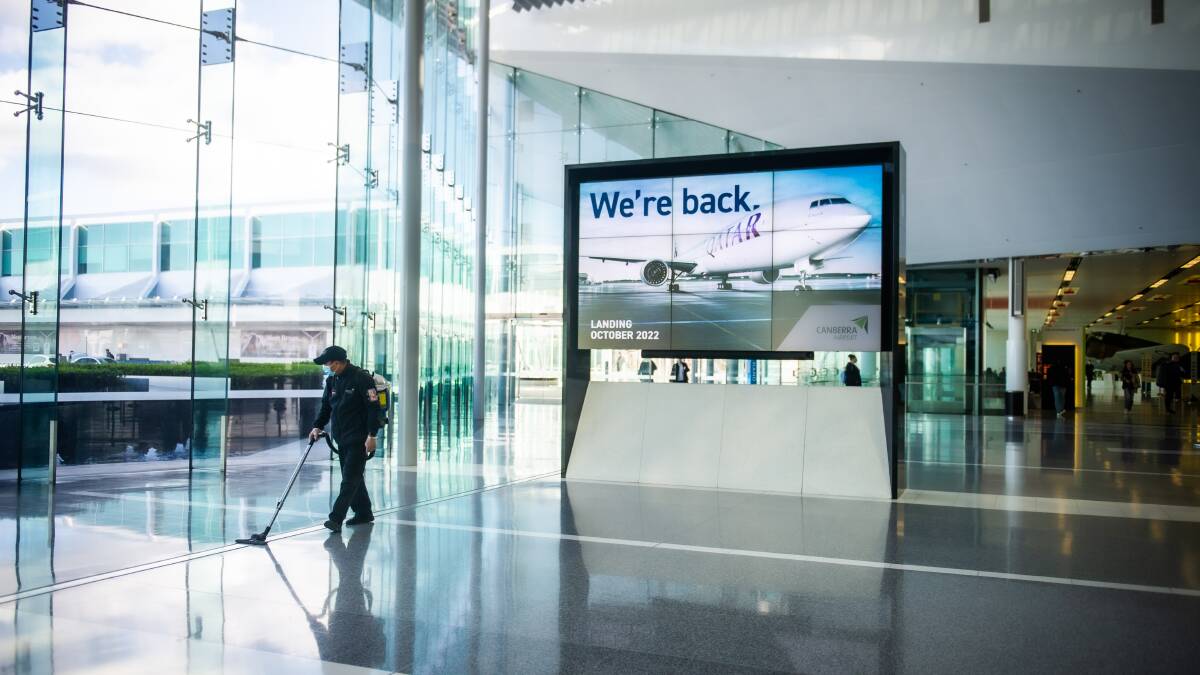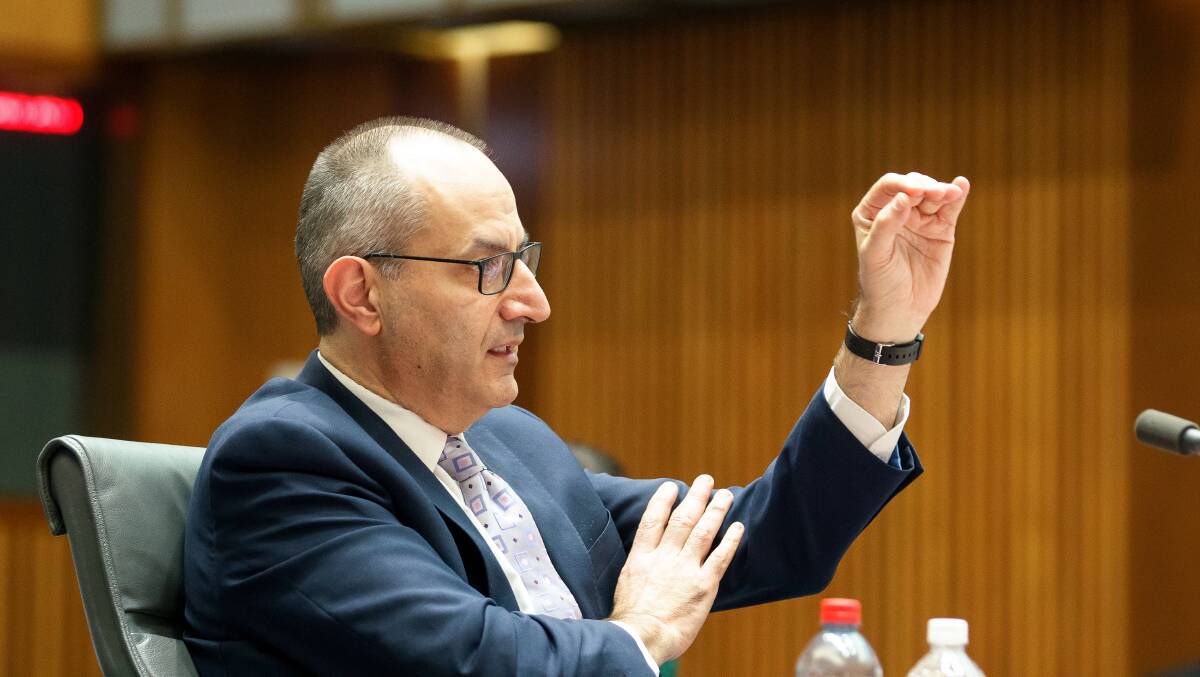
The Home Affairs Department will outsource aspects of its visa services as it anticipates an explosion in the number of applications following the re-opening of international borders.
But the department insists staffing numbers, both overseas and in Australia, will not be impacted.
The federal government is facing increasing pressure to solve the growing visa backlog, which is tipped to soon surpass a million, as skill and labour shortages surface across critical sectors.
It comes as more than 350,000 visa applications were lodged in February and March alone, representing a significant jump compared with the previous calendar year.
Biometric information, such as fingerprints and facial images, for Australian visa applications will be collected by the successful private company, government tender documents issued last week reveal.
Visa applicants will need to attend the overseas processing centres to have their biometric information collected and matched against the applicant before it is sent to the Home Affairs Department for decision-making.
The department said it averaged around 27,000 visa applications a month during the 2021 calendar year.
But the figure had jumped up to 137,144 and 225,514 applications in February and March of this year alone.
In order to manage the significant increase in demand without exponentially increasing costs, the department was looking to private providers.
"The COVID-19 pandemic has impacted on departmental programs and resulted in significantly reduced demand for visas," the tender documents read.
"Economic recovery, however, will be characterised by increasing delivery pressures, evolving threats of growing complexity, and traveller expectations for more efficient and digitally-enabled services."
Home Affairs staff will continue to perform sovereign functions, such as maintaining decision-making over applications, the documents state.

The changes are expected to begin in March next year, according to the department's draft timeframe, and "other services" usually performed by department staff, such as remote interviews and claim checking, are within scope as required.
It will replace the paper-based system to align with traveller expectations for "more efficient and digitally-enabled services".
A spokesperson for Home Affairs said private companies had been used to deliver visa services for the past two decades, with former providers primarily collecting the biometric information in paper form.
"This procurement is to retest the market for services used by the department in its various forms for the past 20 years," a spokesperson said.
"The ... request for tender will have no impact on departmental staffing numbers overseas or in Australia."
READ MORE:
The digital overhaul of Australia's visa and travelling system has been in the works for a number of years, but marred by a number of delayed or cancelled proposals.
In an industry information paper released by the Home Affairs Department in 2020, the department outlined it was working to introduce the digital incoming passenger card for international arrivals from July last year.
It would then work to integrate a simple online visa system for non-citizen travellers due by the end of the year, which, in the long-term, could be expanded to other areas of government allowing for a one-stop shop to get permits, licences and registrations.
But department secretary Mike Pezzullo said the COVID-19 pandemic had brought additional challenges further delaying the expected delivery.
The digital incoming passenger card, which included questions about COVID-19 vaccine status, was sent live in December last year as international borders began to re-open.
Earlier this month, Australia ended requirements for incoming passengers to declare their vaccination status or obtain a travel exemption.
The digital passenger card was also suspended with Home Affairs Minister Clare O'Neil flagging an improved version would be brought back in the future.
"While in time it will replace the paper-based incoming passenger card, it needs a lot more work to make it user friendly," Ms O'Neil said.


